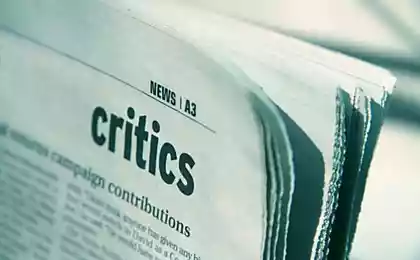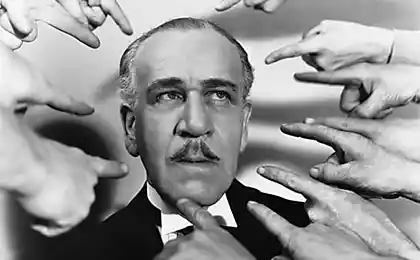477
Learning how to take criticism

Criticism may seem unpleasant, but necessary. It performs the same function as pain in the human body. She drew attention to an unhealthy state of Affairs. – Winston Churchill Criticism is extremely important for personal growth. This is the most direct and shortest route, which shows you the direction in which you should improve yourself. However, the question of accepting criticism can be an emotional problem. In the end, we are just people, who wants to hear about something bad? Hard not to take criticism personally. Our instinctive reaction is to go into protection and thereby close the path of the tips that can be useful to us and improve our lives. In doing so, we miss something that could greatly help us in introspection and self-development. So how do you learn to take criticism and not to move while in defense, feeling a little awkward? Answer: an Effective way to accept criticism — put it on an external level. When you get criticism on an external level, you thereby eliminate the trap of defensive behavior. You stop feeling uncomfortable and take criticism objectively, allowing you to reap the benefits of useful tips, which it carries in itself. Criticism is not personally aimed at you, it is aimed at writer, artist, worker, developer (or to the job for which you receive a score), who just so happens has the same name as you. When you accept criticism objectively, your primary defense mechanism disappears simply because you no longer take it personally. The excretion of criticism on the external level allows you to isolate the useful comments from even the most stringent reviews. You take note of what seems useful and discard the rest. Criticism on excretion the outer layer becomes a kind of shield against unfair and useless opinions. 5 steps that will help you effectively to take criticism are you Ready to improve your perception of criticism? Well. The next time you ask someone to give an opinion about you or your work, follow these five steps to bring criticism on the external level: Wait until your first instinctive reaction, before you take any action – let the emotions subside, so that you did not take criticism personally and never got defensive. Imagine that criticism is directed at someone else – a man who coincidentally has the same name as you, and doing what you are doing. Keep your mouth shut – listen, don't protect yourself will Discuss what it was – questions: a) will help you get even more helpful hints, and b) make criticism more "external" (as you can see it more objectively) Repeat this pattern each time you receive someone's assessment until the removal of criticism to the external level does not become your habit. Here is a small gift. How to more effectively accept criticism:
- Be confident: believe in what you are doing, so that even the most critical comments do not stray you from your path
- Have a clear goal of what you are doing: if you ask someone's opinion about their work, you could take the criticism and improve key points not just to allow outsiders to Express their desired direction of development of your work and make you get lost.
Source: justpost.com.ua
Pain, obesity and loneliness: why the long commute is killing us
Is there another version of You in a parallel universe























